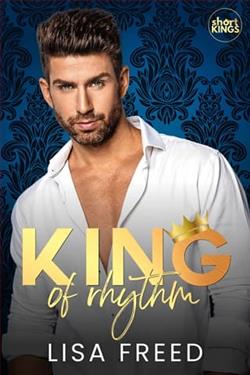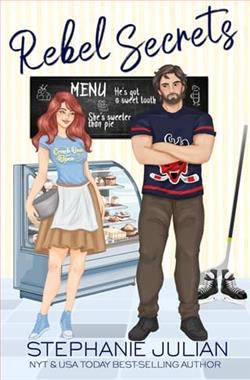Page 58 of Sunrise By the Sea
‘I don’t think—’
‘Yes! Everyone is needed.’
‘But I don’t know what I could do.’
He regarded her with that long unblinking dark gaze.
‘You haff tools?’ he growled, not willing to continue the conversation. He dropped eye contact entirely.
‘What kind of tools?’
‘Tell me you haff tools, we discuss that later.’
‘Uh . . . no,’ she said.
‘Lantern? Torch?’
She shook her head. ‘I have . . .’
She ran into the kitchen, panicking, and returned with a soup ladle.
He nodded.
‘I have no time,’ he said.
And his vast, yellow-clad form – he had somehow acquired a fisherman’s sou’wester, presumably from whoever had woken him up – disappeared into the crashing rain and the storm and as she watched him go, she saw, in the distance, other doors opening, and the shouts of men and women as the village joined together to try and save their own community, to try and save their world from the vagaries of the storm and the weather – and she was the only person sitting there and doing absolutely nothing, as worthless as she was.
Chapter Thirty-six
‘Peow peow peow peow!’
‘I am not sure,’ said Polly carefully, ‘that shooting at the storm will make it go away.’
She had tried to make things cosy – they had lit the hurricane lanterns with which the lighthouse was always well supplied, and the fire was banked high, which just about made up for the fact that of course the television was off and the very loud streaming ofRatatouille, a film Polly loved as much as the children did, was no longer placating Daisy. The child was no longer small enough to be comfortably hoiked around in the crook of Polly’s arm, but Polly was doing her best.
Huckle glanced at his phone.
‘Holy crap,’ he whispered, as Daisy stiffened.
‘Is Daddyswearing?’
‘Nooo,’ said Polly and was almost relieved when Daisy slipped down and announced to Avery that apparently holy crap wasn’t swearing and they could say it now whereupon they started galloping around the room chanting ‘ho-lee crap! ho-lee crap!’ as Polly sidled up to look at what Huckle was showing her on the phone. She closed her eyes. It was a text from Andy. The harbour wall was crumbling and the causeway was losing its cobbles. Oh my God.
‘Do you remember when they wanted to build a permanent bridge?’ she asked Huckle wearily, who nodded. They had turned it down: happy to live half on an island, half connected to the land, as the causeway rose and fell through the tides, giving them the best of both worlds, just as it had been for hundreds of years.
Polly frowned.
‘Do you think it’s possible we should have just let them?’
Huckle was already shrugging on a huge outdoor coat and checking his boots were dry.
‘Right now I do.’
‘We can’t lose the causeway! It’s been there for eight hundred years.’
‘Well, that might be part of the problem. And the rest of the problem . . . probably human beings.’
‘HO-LEE CRAP! HO-LEE CRAP!’















